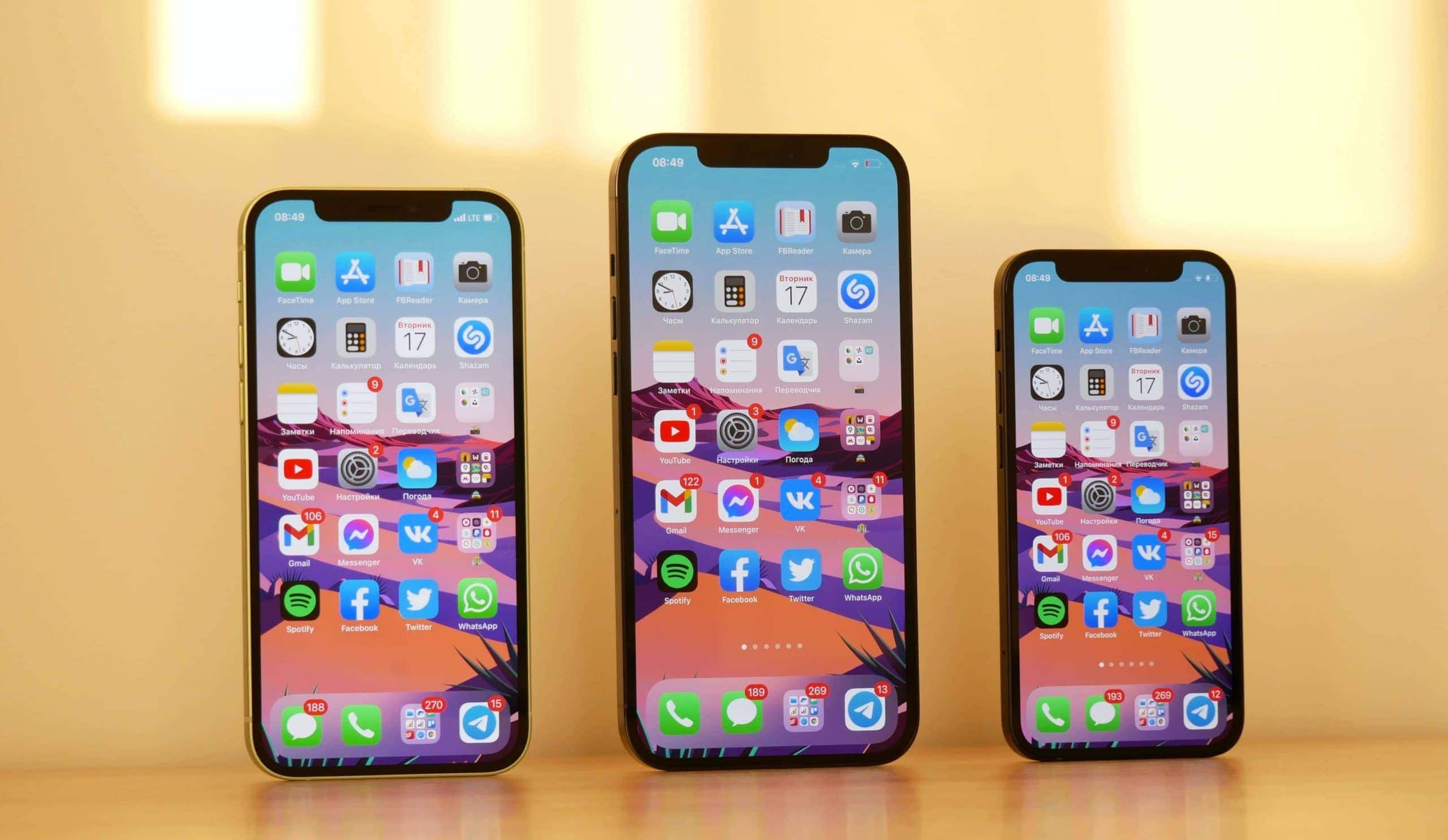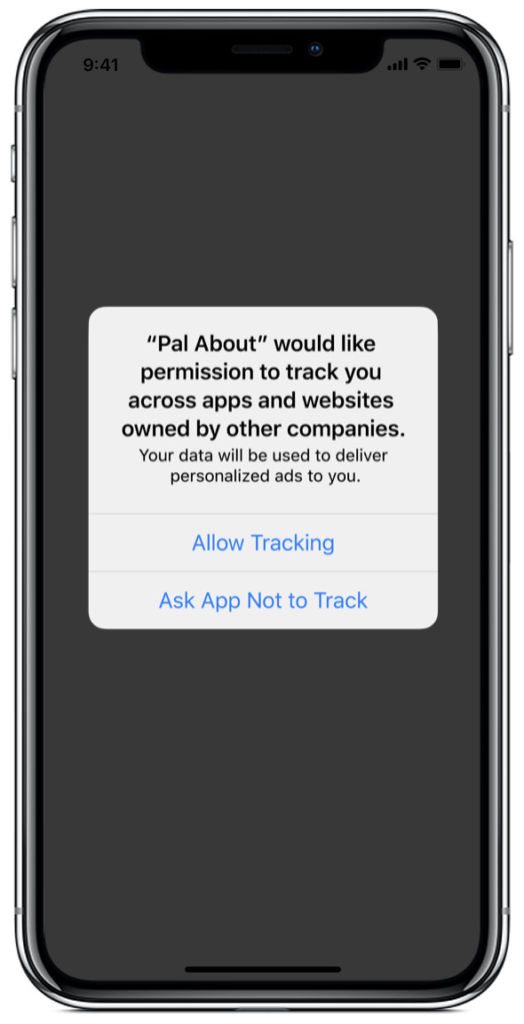iOS 14 Brings Big Changes for Facebook Advertising

In June of 2020, Apple announced that they would be rolling out a series of policy changes that will be a major shakeup for the data sharing scope across the iOS 14 platform. As of December 8 all developers must provide information regarding their data collection practices before submitting or updating their apps. One of the biggest impacts will be on businesses running ads using Facebook’s suite of business tools. The rollout will severely limit the amount of data that is tracked according to user opt-in specifications.
What the Policy Says
According to the Apple developer site, the policy change is an effort to keep apps available in the App Store “held to a high standard for privacy, security, and content.”
To do so, Apple will force app developers to list all data that their apps will be collecting and force users to “opt-in” to data tracking. While that may only appear to be an issue for app developers, it will take a serious toll on everyone who uses Facebook, or any other social media platform, for their digital advertising needs.
The policy reads, “Later this year, the App Store will help users understand an app’s privacy practices before they download the app. On each app’s product page, users will learn about some of the data types an app may collect and whether the information is used to track them or is linked to their identity or device.
You will soon be required to provide information about your privacy practices in App Store Connect. If you use third-party code — such as advertising or analytics SDKs — you’ll also need to describe what data the third-party code collects, how the data may be used, and whether the data is used to track users.”
How Advertisers Will Be Affected
There are a few ways that the update will disrupt advertising, and Facebook has had a lot to say about it.In an article from the Facebook Business Help Center, they note:
“…Apple will begin to require that all apps in the App Store show a discouraging prompt to users on iOS 14 devices, in accordance with theirAppTrackingTransparency framework. Apple’s policy will prohibit certain data collection and sharing unless people opt into tracking on iOS 14 devices via the prompt. As more people opt-out of tracking on iOS 14 devices, 0000000
and performance reporting will be limited for both app and web conversion events.”
Another article notes the severity of the impact, specifically on small businesses:
“Apple’s policy will make it much harder for small businesses to reach their target audience, which will limit their growth and their ability to compete with big companies. Case in point, our studies show that when running ads on the Facebook family of apps to drive sales on their websites, small businesses saw a cut of over 60% of their sales, on average, for every dollar they spent when they weren’t able to use their own data to find customers on Facebook.”
The opt-in prompt, shown below, makes it very easy for users todisableFacebook tracking, which businesses use to retarget, optimize, and build marketing audiences.

Facebook’s Aggregated Event Measurement Protocol
In response to Apple’s changes, Facebook created the Aggregated Event Measurement Protocol. It encompasses a series of changes made to allow the site to process pixel conversion events from devices running iOS 14.
Before we can jump into all of the new changes on Facebook’s end, though, let’s take a second to review what the pixel tool is and does.
In essence, pixel is a snippet of code that a business places on their website, which then collects data on Facebook conversions from ads that people clicked on the social media site. This allows you to retarget, rebuild, and remarket to audiences based on how they interacted with your website during their visit.
Also important to note are the “events,” or specific actions that the pixel collects data on. There are 17 standard options, including:
- Lead
- Complete registration
- Add to cart
- Add payment info
- Subscribe
- Submit application
- Donate
- Customize product
- Initiate checkout
- Purchase
- Add to wishlist
- Search
- Find location
- Start trial
- Schedule
- View content
- Contact
Additionally, businesses can configure more specific events according to their needs, such as tracking only donations larger than $40 or people who searched for a specific term that you define.
Now that we’ve had a quick refresher on pixel, here are some of the key details of the Aggregated Event Measurement protocol:
- Users need to update to Facebook’s SDK for iOS 14 version 8.1 to continue receiving conversion data reporting.
- You will need to verify your website’s domain, which will allow you to configure pixel events.
- The number of configurable events has dropped to eight per domain. Facebook will do the initial configuration, and all other events will be disabled until you change them.
- Apps are only allowed to be associated with one ad account, but you can use the same ad account for multiple apps.
- Each app can only run 9 ad campaigns at once, which are further limited to 5 ad sets of the same optimization type. If you disable a campaign to enable a different one, there is a 72 hour “cooling off” period before that slot will open up again. That means that if you have 9 campaigns running and turn one off, you cannot run the new campaign until 72 hours have passed.
- Auction is now the only ad purchasing option available.
- Once a campaign has started, you cannot toggle it on and off. You must either permanently toggle it off or delete it completely.
- Facebook will delay data reporting for up to 3 days.
Where Do Businesses Go From Here?
The eight points discussed above are only a fraction of the dozens of changes being made to how businesses can configure and track their advertising data with Facebook. It’s an overwhelming upset, leaving many who depend on this conversion data floundering for solutions.
If you’re concerned about the future of your advertising ability, let NATIV3 take a crack at it. We can help you configure and create ad campaigns that give you the best results possible in the face of Apple’s limitations. Take a moment to fill out our contact form, and we’ll get in touch to discuss the possibilities for your current and future advertising options.